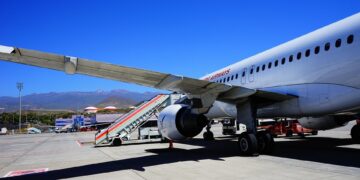
SANTA CRUZ DE TENERIFE, Nov. 4 (EUROPA PRESS) –
The Cabildo de Tenerife, through the Insular Council of Waters of Tenerife (CIATF) incorporates 15 people who were unemployed to its staff, through the project ‘New Employment Opportunities’, a subsidized program, co-financed by the ESF Operational Programs of the Government of the Canary Islands 2014-2020 of the Canary Islands Employment Service and European Social Fund, which seeks to promote and improve the job prospects of a significant part of the unemployed population, who even having the necessary training, do not find a job opportunity.
“It is good news that from the Insular Water Council we can renew our adherence to this project, through which, for a year, fifteen trained people can develop their work in the institution, thus fulfilling a double function, on the one hand, to contribute their skills and abilities to the council itself, and on the other hand they will treasure a valid experience and practical training that will undoubtedly help them in a future job, “said Javier Rodríguez Medina, island councilor for Sustainable Development and the Fight Against Climate Change and president CIATF.
The ‘Noe 2021-2022’ project was started by the agency in October with the hiring of the project’s tutor, and as of today, the 15 people who will make up the project, in such a way that during the remaining twelve-month period of the project, the people who are hired will receive support and training to acquire the skills and abilities necessary to perform the positions corresponding to the different professional categories offered.
These 15 people will occupy positions related to degrees in Civil Engineering, Chemical Engineering, Law and Economics, and intermediate or higher degree training cycles in administration.
The Tenerife Water Council has extensive experience in the management and implementation of subsidized employment projects in collaboration with the Canarian Employment Service, aimed at improving the employability and job placement of unemployed workers without training or professional qualification , especially focused on young people under 30 years of age enrolled in the National Youth Guarantee System, which since 2007 has included a total of 147 participants in the different subsidized projects to date.















